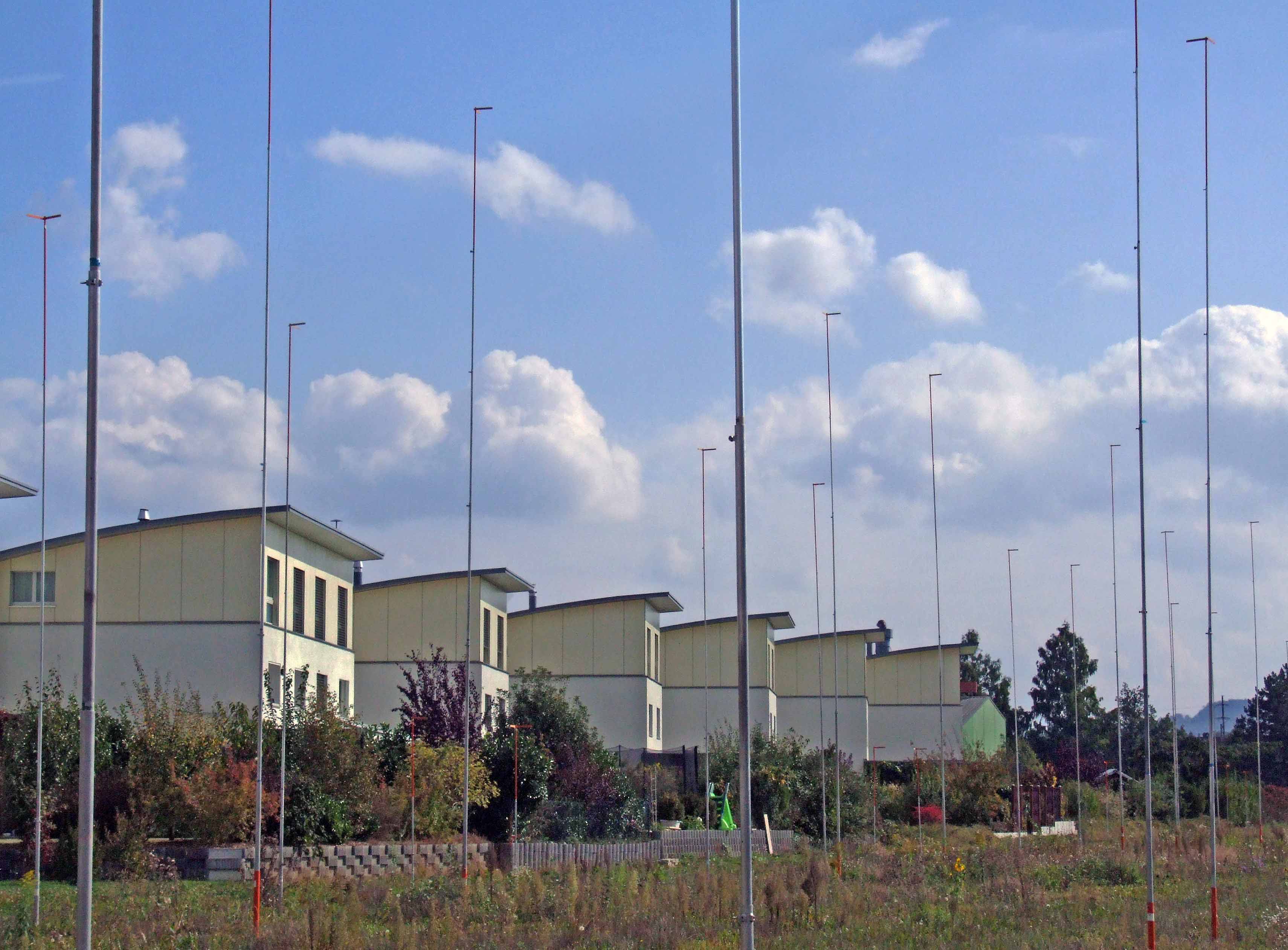
Study deconstructs urban sprawl

The lack of a serious and coordinated response to rapid urban sprawl has almost turned the entire lowlands where most Swiss live into a single conurbation.
This development comes at a high cost to the economy and prevents the efficient use of resources. These are the key findings of a broad National Research Programme (NRP) study presented on Wednesday.
Every second, one square metre of land is built over. And the attractiveness of Swiss town centres has pushed up the value of properties and comes with a hidden, unwanted price tag – the social cost of squeezing out families and the elderly.
The maintenance and upgrades to the infrastructure required to support this conurbation – and Switzerland’s few other population centres – will cost about SFr31 billion ($35 billion) annually over the coming two decades. That is nearly six per cent of the country’s Gross Domestic Product (GDP). And the money needed for the Swiss road and rail networks alone has yet to be secured.
However, Eugen Brühwiler, president of the steering committee of the NRP study, Sustainable Development of the Built Environment, says it’s not too late to act. “We need to change our way of looking at the built environment,” he told swissinfo.ch.
That was the reason for the exhaustive study which encompassed three main areas: space, infrastructure and materials, and energy. These were broken down into more than 30 individual research projects, carried out over a five-year period.
Growing pains
Switzerland’s population has been growing at slightly more than one per cent a year and at the end of 2010 was just shy of eight million. But this growth is not the main reason for the urban sprawl, as the authors of the study found.
Over a ten-year period starting in the mid-1980s, the amount of land built over rose by more than 13 per cent, while the population only grew by about nine per cent. The Swiss are not alone.
It’s a phenomenon happening across Europe, which, according to the European Environment Agency, is due to several factors including rising living standards, the preference for more space per person, and the desire to get away from the noise, pollution and crime of cities. These factors coupled with affordable land in the countryside and extensive road and rail networks have quickened the pace.
And like most European countries, Switzerland has yet to come up with viable solutions to contain the problem.
No easy answers
The final report of the NRP study does not provide any easy answers but does present a number of recommendations.
“These measures are necessary in order that we use the existing potential in the country, to refocus growth in areas where there is already a built environment,” explained Brühwiler.
Many of the recommendations boil down to calls for better coordination between the authorities at the federal, cantonal and municipal levels, added the professor from the Federal Institute of Technology Lausanne (EPFL).
Let’s talk
This would lead to an integrated approach to housing, transport, infrastructure and the natural environment. To this end, the authors are urging policymakers to develop a national infrastructure concept, raise awareness of the need for sustainable development and encourage towns to work more closely together.
The authors also said municipal planners should take account of demographic and social changes by creating liaison bodies to work across departments with the goal of ensuring, for example, mixed income neighbourhoods.
The elderly, families and low-income residents have been the losers of the rising prices in city and town centres. But up to now, few councils have made any effort to counter the negative effect of these “segregation tendencies”.
Switzerland should also strive to build more densely, redeveloping brownfield sites. Many of them are centrally located like the nearly three million square metres of disused railway land.
A good example of how these sites can be used is the “Ecopark” in Neuchâtel, which was retrofitted for multipurpose usage including apartments and to house the Federal Statistics Office.
The study also highlights the fact that Switzerland currently lacks the know-how to ensure sustainable land use, and therefore its higher education institutions must turn out more graduates with expertise in infrastructure planning and urban development.
An NRP is an umbrella programme under which research projects are carried out. The government determines the issues an NRP should address and the areas on which it should focus.
It then instructs the Swiss National Science Foundation to conduct the NRP.
Within an NRP there should be a series of coordinated research projects, all working towards a common aim. These projects must satisfy the following three conditions: they must deal with issues of national importance; they do not undertake any primary research and are not allied to the administration or to industry. The research on these problems can be expected to produce research results that have practical applications within a five-year duration.
The programme, Sustainable Development of the Built Environment, was divided into three modules.
“Space” looked at how architects, planners, the construction industry and infrastructure providers impact the development of the built environment, and how organisations can incorporate principles of sustainability in the planning process.
“Infrastructure” investigated how the operation and maintenance of the built environment can be done more sustainably and how this urban landscape can be adapted to preserve the wellbeing and prosperity of the population.
“Materials and Energy” focused on how the principles of sustainability affect the management of resources (land, water, energy and materials) and the ways these resources are integrated into planning, construction, maintenance and waste management.

In compliance with the JTI standards
More: SWI swissinfo.ch certified by the Journalism Trust Initiative


























You can find an overview of ongoing debates with our journalists here . Please join us!
If you want to start a conversation about a topic raised in this article or want to report factual errors, email us at english@swissinfo.ch.